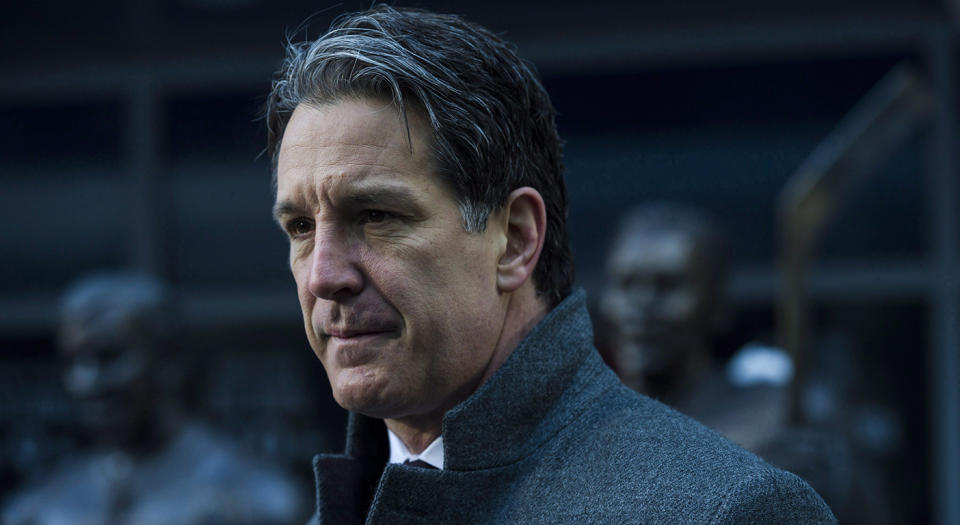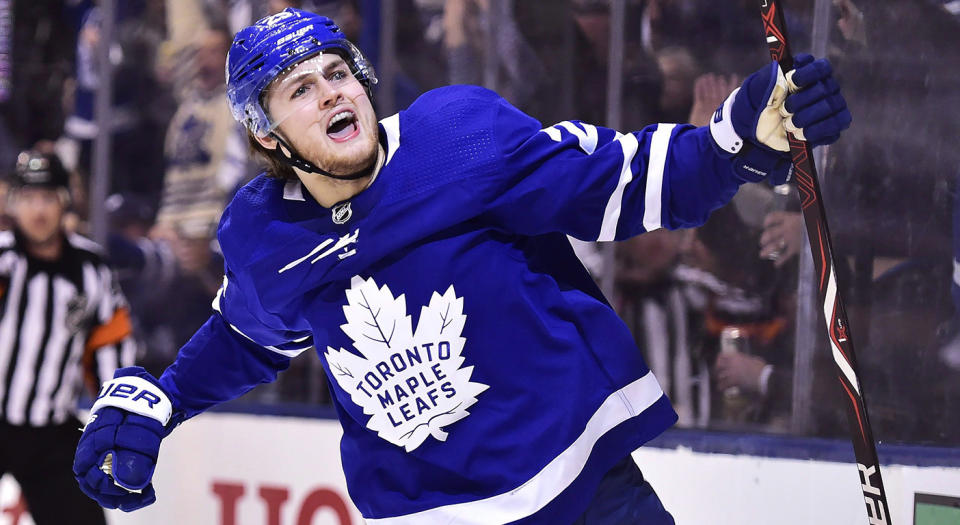Nylander shouldn't let Shanahan talk him into taking less money

Very, very few people get paid enough.
That’s a fact of life. Wages rise very slowly, especially relative to the rate of productivity, and there are always people who try to get between you and the actual full market value of your labor. Shareholders, executives, your own bosses and more all conspire to wring as much value from your talents as possible relative to what they actually pay you.
Put it this way: The reason the minimum wage has to exist is that if your employers could pay you less, they would.
This is true if you work a job making $8 an hour, it’s true if your company pays you $100,000 a year, and yeah, it’s even true for unionized millionaire professional athletes.
We hear all the time in sports that guys could, would, or should take hometown discounts to help their teams be as successful as possible. Under a salary cap system, after all, every dollar you make is one a teammate cannot.
The issue in the case of William Nylander, then, is that he doesn’t seem to be budging much from his ask of a long-term deal with an AAV north of $8 million. And not budging in this case means having basically no willingness to negotiate at all. Toronto would apparently like to see that number brought down by about $2 million so he’s in the David Pastrnak neighborhood of $6.67 million.
You get it from both sides. The player wants to make as much money as he feels he’s worth — whether a 21-year-old whose career high in points is 61 is worth $8.5 million a year for the better part of a decade is debatable, I guess — and the team wants to keep the price down so it can sign its other stars.
The problem here is that Brendan Shanahan, the Maple Leafs’ president, came out this week and started negotiating through the press. Basically what he said was that when he was on the Red Wings and they were winning all those Cups, they weren’t thinking about how much they were being paid and only how good the team could be. Yeah, he said, you might be able to make a few million dollars more over the course of the deal, but you forget about that when you win championships.
And on some level, this is an understandable argument. There really isn’t an effective difference in your life if you make $6.67 million versus if you make $8.5 million. What would the extra $2 million a year or so actually buy you that you couldn’t already buy?
But let’s be clear about what why what Shanahan is doing crosses the plane from being self-interested to being morally wrong: He is a former member of the same union that is supposed to uphold Nylander’s collectively bargained right to make every dollar he possibly can. If you’re a professional athlete, especially in a sport like this, you could suffer one injury and never play again. If you do not have assurances that you’ve wrung every cent out of a league that grinds guys into dust over their careers, you’re doing yourself a disservice.

Saying, “Ah, c’mon Willy, just take less money so you can win! That’s what we did!” is disingenuous from Shanahan at best. Do you know what the Red Wings payroll was when they won the Cup in 2002? It was about $65 million. Without Nylander signed right now, the Leafs are carrying a projected season-long cap hit of just under $67.3 million. So it’s not like anyone was going broke to be on elite teams back then.
Put another way: Shanahan almost certainly never took less money to ensure the Wings were good. To ask Nylander to do the same is to sell out his union brother because he got a promotion, and that’s a tactic I would have thought was beneath him.
I guess it speaks to the eff-you-got-mine mentality of management types, but it’s not as though there’s a lot of solidarity in the NHLPA to begin with. Young players have long been admonished for seeking big payouts coming off their entry-level deals (which themselves are unfair) because older guys “paid their dues” by taking smaller, bridge deals early on. These are guys who got bilked by the system in the past and want to keep perpetuating that inequity just because they don’t want to see someone get something they did not. It’s not exactly closing the door behind you, but it’s certainly not holding it open.
These things are changing. Nylander or Pastrnak even getting north of $6 million (or its cap-adjusted equivalent) would have been borderline inconceivable a decade ago. Crosby, Ovechkin, and Malkin, I think, really broke that “second contract” mold in the cap era and even lesser talents get that benefit.
But that’s the issue here, right? You can guarantee that next summer, Auston Matthews is gonna write his own ticket, and get something like a $12 million AAV. Mitch Marner probably will too (albeit to a lesser extent). If you wanna say that both Marner and Nylander are worthy of what you’d call “Draisaitl money” I guess I’d agree with that.
So why should Nylander take the hit just because his contract came up first? And why would he do so now, just because his boss all but call him selfish in font of the scavenging-for-a-story Toronto media? The Leafs have some $12 million in cap space right now. Could they not get creative — a la some proposed Tavares deals — and give Nylander more than what he wants now, for one year, then sign him at a reduced long-term freight next year? That gives everyone what they want, and provides Nylander more insurance that he won’t take less, but then Matthews, Marner or Jake Gardiner don’t.
If they all want to work out a deal simultaneously where they get Sedin-like identical contracts so they can stay together, that’s their prerogative. Of course, they’d be taking a discount because John Tavares did not. Of course, if Nylander refuses to sign — note this isn’t a holdout because he’s not under contract — he’ll probably find himself traded before the start of December. That’s his prerogative too.
It doesn’t have to be an either-or proposition here. In theory, Nylander could both get paid and make the Leafs a Cup contender for years to come if Tavares and Zaitsev and Marleau and Hainsey took less money. But no one was mad when they didn’t because of the arbitrary difference between restricted and unrestricted free agency, negotiated by a player’s union dominated by guys who do not have the best interests of all members at heart, because they have no incentive to do so.
The good news is that players themselves seem to have stopped actively commenting upon teammates’ ongoing contract negotiations and encouraging teammates who are out of contract to just take a deal so they can get back with the club and start playing. That’s a trend that seems to have picked up steam in recent years.
And that’s encouraging, because to ensure the best possible conditions for all players, NHLPA members past and present have to present a unified front to management. That becomes harder when so many former players are now managers themselves, serving the interests of billionaires, to begin with.
But if younger guys, having been screwed over by decades of ineffectual or disinterested veteran leadership within the NHLPA, have finally developed a little more class consciousness, maybe, just maybe, they’ll actually win something in that next lockout.
It’s something to consider at least.
Ryan Lambert is a Yahoo! Sports hockey columnist. His email is here and his Twitter is here.
All stats via Corsica unless otherwise noted.

 Yahoo Sports
Yahoo Sports 

